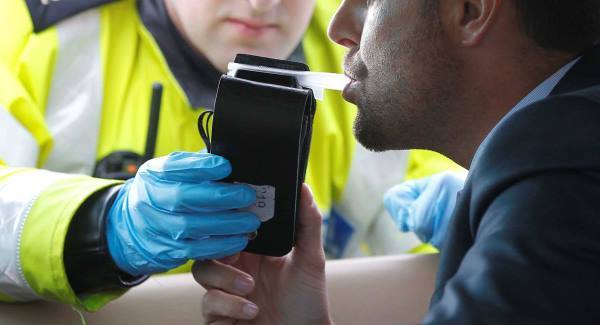Transport Minister Shane Ross has vowed to adopt a zero-tolerance policy towards drink drivers, with “no exceptions”.
This follows the tabling of Minister Ross’ Road Traffic Amendment Bill in the Dáil yesterday. The Bill suggests that anyone caught with between 50 and 80 milligrams of alcohol per 100ml of blood should be automatically banned from driving.
He says that ‘morning after’ drivers can still be impaired, and that this will not be tolerated. Moreover, even if it is someone’s first offense, they will still be banned for drink driving.
“We cannot take any chances when it comes to alcohol when it comes to driving, we have to send out an absolutely clear message that there are no exceptions,” Minister Ross said on Morning Ireland on RTE Radio One.
“If you are going to drive then you must not drink, it is as simple as that and if you make exceptions we’ll open the floodgates for people to think it’s okay to have one or two drinks and driving the next morning.”
During the Dáil debate, he said that although the Road Traffic Act of 2010 “generally served us well”, tighter restrictions must be imposed.
The TD says that there is an inconsistency with the way in which disqualifications are doled out. Minister Ross says that people are disqualified for driving dangerously, having no insurance, and parking dangerously – so why not for speeding?
“Do we really mean to say that a person driving on a road while over the alcohol limit is less of an immediate danger to public safety than someone who is parking dangerously? Are they posing less of a danger to public safety than someone who has no insurance?”
After peaking at 472 in 1997, the amount of road deaths in Ireland hit a historic low of 162 in 2012. Since then it has fluctuated. So far this year, 133 people have died on Irish roads. “That is still 133 too many,” says Minister Ross.
According to the RSA, alcohol is a factor in over 1 in 3 road deaths (38%), based on coroners’ reports.
Under current legislation, if a person is between 80 and 100 mg per 100 ml they get a six-month disqualification. If they are between 50 and 80 mg per 100 ml, they can choose to accept three penalty points.
As it takes 12 penalty points for a six-month disqualification, someone could potentially drink drive (50 to 80mg per 100ml) FOUR times before facing any consequences.
Minister Ross’ Bill instead proposes a three-month disqualification in place of a “relatively trivial” three penalty points.
He explains: “This is a short period but it is a disqualification. It is short because it is in the lowest bracket of those over the alcohol limit. Anything less would simply say – as the law so regrettably does at present – that a little alcohol over the legal limit before driving is not a serious matter.
“There have been those who claimed that this Bill will not save a single life. They could not be more wrong. To give an idea of the scale of the issue, in the years from 2012 to 2016 inclusive, 3,003 fixed-penalty notices issued to drink-drivers in the 51 mg to 80 mg alcohol concentration bracket. This is the number of people facing the prospect of penalty points instead of a disqualification.”
He adds that the RSA has found that between 2008 and 2012 at least 35 people died in collisions where drivers had alcohol levels at between 21 mg and 80 mg. Of these, 16 were in the 50 mg to 80 mg range.
“If we had taken drink-driving, even at what we call low levels, more seriously, these 16 people might be alive,” he says.
In response to those who say the new bill will cripple people’s social lives in rural Ireland, Deputy Ross says that they are “missing the point”.
“We want to save lives in rural Ireland… The fundamental mistake of those critics who say that this Bill will damage rural Ireland is that they are conflating two very different issues.
“One is drink-driving, which is a public safety issue, and an issue on which I want to protect the public everywhere, in all areas, rural and urban. The other and entirely separate issue is the problem of social isolation in rural Ireland. These two issues are different and those who would treat them as one issue do a disservice to both.”
“We talk of a need for culture change in regard to drink-driving, and rightly so. We cannot expect a change if the law itself does not step up to the mark,” concluded Minister Ross.
Tags:








